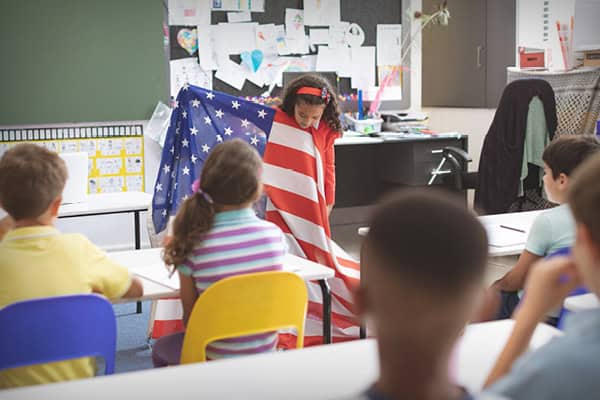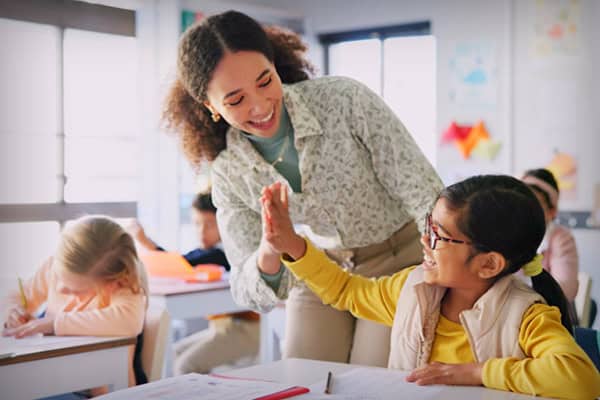In Adam Williamson’s social studies class, students learn American history “in the full light of day,” according to Chalkbeat Indiana.
That means everything the country has accomplished and its historical significance, along with its mistakes along the way, Williamson says.
As a 16-year veteran teacher and department chair at Mississinewa High School, a school about 70 miles northeast of Indianapolis, Williamson tells Chalkbeat that the criticism that teachers face for teaching negative or divisive lessons about history is misdirected.
“Teachers aren’t responsible for this attitude — we are often the first line of defense in trying to convince students that the United States is worth revering despite its past mistakes,” Williamson says.
Just as important as helping students understand the past is helping them grow into their roles as future adults, citizens, voters, and leaders. For this goal, Williamson says active learning is the key.
He leads students through mock legal proceedings, as well as simulated congressional hearings as part of the We the People curriculum and competition and helps them understand how civics will affect their day-to-day lives.
“I often teach civics using simulations. I particularly enjoy my mock trial and legislation simulations — I find that students begin to make direct connections to their own lives when they engage in those processes. Active learning pays dividends!
“I see the teaching of United States history as an opportunity to invite my kids to confront American history in the full light of day, warts and all, and consider all that America has accomplished and all that it represents to humanity despite our missteps along the way.
“I find that running students through the processes of civic and political life demystifies things for them. Again, active learning is key. The fact that many of them are eager to begin adult life can provide leverage for engaging them in these sorts of participatory lessons. I often say, ‘You’re going to be an adult in the eyes of the world soon, so you might want to know how this works.’ That reality check tends to be effective for most students.
“I encourage students to stay in touch with current events by following their favorite news source, and I often invite students to ask questions about what’s going on in the country and in the world. There’s usually a connection to something we’re discussing in class, whether I’m teaching history or civics. Topical conversations pop up regularly as a result.
“Perhaps most importantly, I encourage students to be aware of the source of their information, particularly in regard to media bias and information reliability. We talk about how to determine trustworthy information sources and how to determine bias.”
Chalkbeat Indiana





